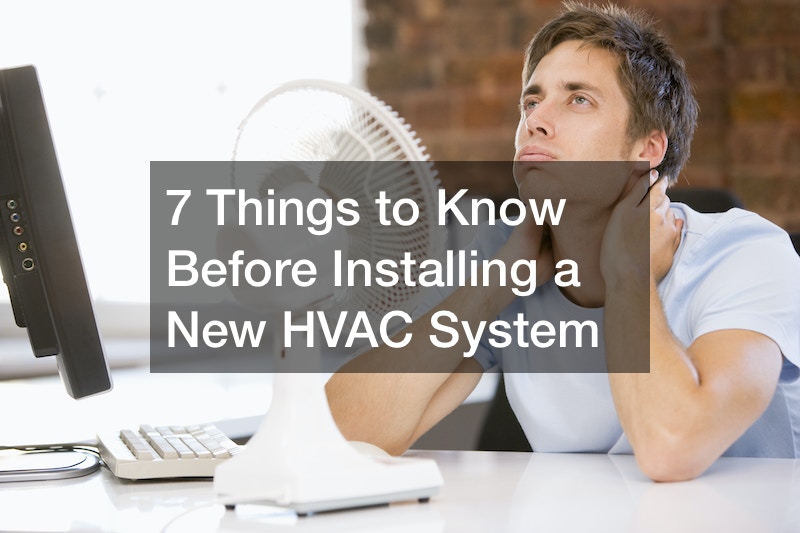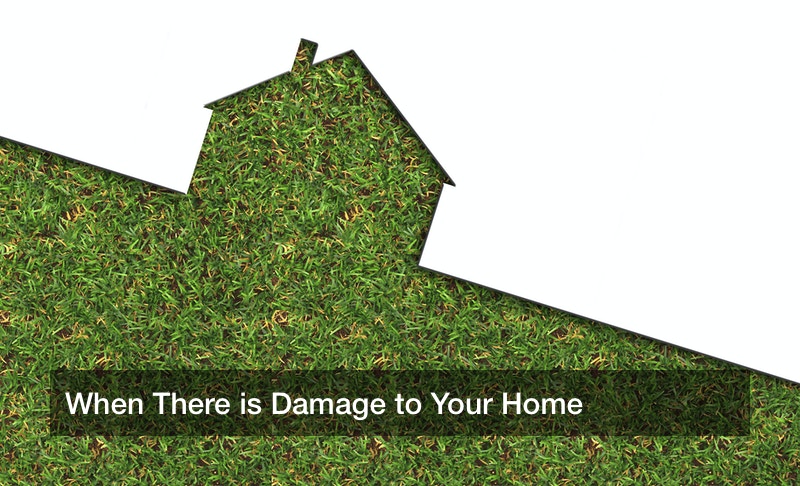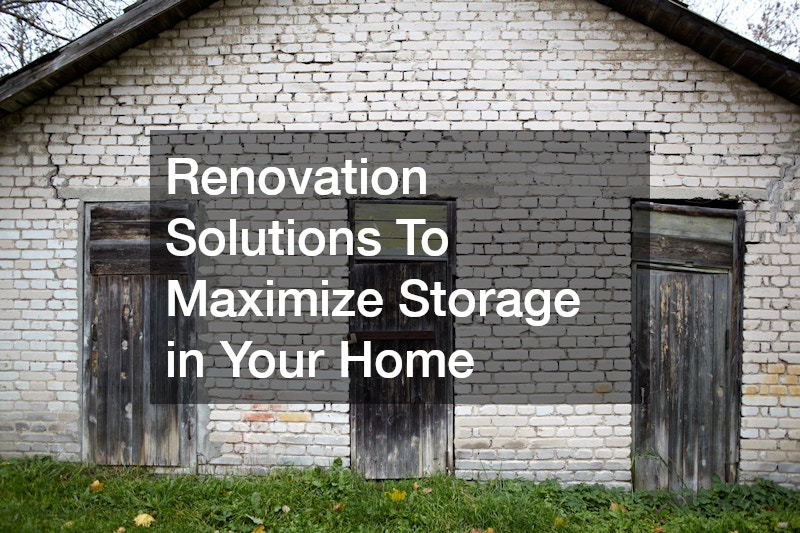
An air conditioner is a necessity today. If yours is aged or faulty, you need to replace it to enjoy comfortable temperatures in every season. Before buying a new AC unit, research the best brand and model suitable for your home’s needs. Compare prices from different manufacturers and don’t settle for cheap models. Expensive AC systems are cost-effective in the long run because they consume less energy and you’ll save money on electricity bills. In addition, consider installation costs. Hire experienced professionals to avoid incorrect installation, which has potential risks. In addition, consider the quality when shopping for an AC and heat furnace for residential or commercial buildings. High-quality units live longer and don’t require frequent repairs.

Avoid buying AC and heating units before considering the size you’ll require. You can consult a professional technician for advice on the best size for your building. Smaller units consume a lot of energy because they have to run continuously. On the other hand, large units cool air quickly; thus, they humidify the air more effectively.
Consider the air quality of an AC and heater fan. Every system has a manufacturer’s predefined requirements for air quality. Lastly, ensure an HVAC unit is in optimal condition before buying. Find a professional to install it in an appropriate place.
When it comes to providing your home with energy efficiency, purchasing an HVAC system is a prolific investment to make. You must choose a new heating and cooling unit that is appropriate for your home. An ideal HVAC system should be able to provide super heating and cooling to your home as well as partial air conditioning. Installing a new HVAC system will require you to know about HVAC technician services. A professional HVAC technician will help you choose the right HVAC system with a central air conditioner with gas heat and safely install it. Here are some things you should know before you install your HVAC system.
Consider Your HVAC System’s Size
Assessing the size of your HVAC system is important because it helps to determine its air quality. If it is small, the air can’t be treated properly, and if it is big, it may undermine the system’s efficiency and malfunction even before you start using it.
The Place to Install It
Due to them making some noise when in use, you might want to place your HVAC system somewhere where it won’t cause a disturbance. Don’t place it in inconvenient places such as outside bedrooms in your home. A qualified HVAC technician will know the ideal place to install it.
If you are looking for HVAC systems suitable for your home, reach out to us today and get professional advice from a qualified HVAC technician on the steps to take in installing your unit.
Like everything else in your home, your HVAC unit will eventually need repair or replacement. It does a lot of work year-round to cool and heat your home. The normal wear and tear of this constant activity will eventually take its toll, even if you are diligent about doing maintenance and repair yourself.
Depending on exactly what kind of heating and cooling you have in your home, and where you live, you will have different needs when it comes to new HVAC installation. You may be able to replace or clean the unit rather than replacing it entirely, but that will depend on things like the age of the unit, the climate and how much it is used.
This isn’t unique to HVACs, either. This will be a constant theme in your home. In fact, with 85% of U.S. houses being built before 1980, there are a lot of home improvements most of us could stand to invest in.
If you are looking into whether to repair or replace your HVAC unit, there are some tips and tricks that can help you along the way. Check out these 7 tips about HVAC units before committing to new HVAC installation in your home.

1. What is an HVAC?
HVAC stands for heating, ventilation and air conditioning. It is an important part of a home’s systems for both heating and cooling. The HVAC in a home can move air from inside to outside, or vice versa. HVACs are also used in commercial buildings and not just homes.
HVACs do more than just heat and cool, however. They can also serve a filtering purpose, keeping the air circulating inside a home clean. Additionally, they may help regulate the humidity with the home.
With so many important functions, it’s no wonder people can feel worried when they need new HVAC installation. The unit is integral to the overall comfort of the home. One that is in need of replacement or repair can cause big disruptions to everyday life.
Though there can be variations, many HVAC systems work via air ducts in the home. These ducts allow for combined heating and air conditioning that can move throughout the entire home as needed. However, some systems do without ducts or use separate components for different aspects of heating and cooling.
Regardless, your HVAC system is still doing a lot of hard work, no matter how it is accomplishing it. It doesn’t just push air around. It pulls in and cleans the air from outside before heating or cooling it and moving it around the house. This is an incredibly important function that can make new HVAC installation an urgent need if your HVAC isn’t working properly anymore.

2. How Much Does an HVAC Cost?
An HVAC system can vary widely in price depending on the type of system it is, where you live, who you buy it from, and many other factors. From a low of $1,500 all the way to a high of nearly $30,000, an HVAC doesn’t have one set price. New HVAC installation comes in a huge range of prices, so you will want to talk with a few installers and get quotes before you make any decisions.
This is not to say you should put it off because of money. Even at a high cost, HVAC replacement is very important when you need it. Having a faulty HVAC system might make your home less appealing to live in, forcing you to deal with conditions that are not only sub-optimal but perhaps even unsafe in the most extreme examples.
If you need a new HVAC installation, you should be aware of the potential costs. We’ll break down the typical price ranges for several common types of HVAC units. These are average prices to install the unit.
- Heat pump: This can range from $5,000 to $6,500
- Gas furnace: This ranges from $4,000 to $5,000
- Oil furnace: This ranges from $5,500 to $6,500
- Electric furnace: This ranges from $1,500 to $2,500
- Central air conditioning unit: This ranges from $3,500 to $7,600
- Ductless split air conditioning unit: This ranges from $3,000 to $5,000
- Geothermal heat pump: This ranges from $20,000 to $27,000
As you can see, the price range for new HVAC installation is massive. You should be familiar with the type of HVAC system you have before you go into this process. If you are looking to change your system, or perhaps add one that doesn’t yet exist, you should still be informed about the different types of HVACs available.
Depending on where you live, the local climate, and how your home was built, every option may not be available to you. Certain types of HVACs will only work in certain conditions and types of homes. So you may be limited in exactly what you can choose for your new HVAC installation.

3. Can You Repair Your HVAC Instead?
Yes, sometimes. There are some DIY solutions for HVACs and they are worth considering before you commit to new HVAC installation. If your current unit can be repaired, by you or a technician, that will save you a lot of money.
A lot of HVAC maintenance can be done at home with simple tools like wrenches, drills, pliers and a voltage tester. You likely already own a lot of what you’d need if you have any kind of tool kit at home. However, it never hurts to check before you start a repair project at home.
You’ll always want to turn off the power any time you are trying to do work on your own HVAC. If you find your air conditioning isn’t working, it’s good to first check the furnace filter. This is a place where gunk can build up and inhibit the proper functioning of the unit.
Another place to look is the condenser coils. Like the furnace filter, the condenser coils can get clogged with junk. If they overheat, that may cause the unit to shut down.
But what if you’ve checked all the simple, obvious places and it still isn’t working? If you have cleaned things like the filters and done what repairs you’re comfortable with, you might be running out of options for DIY repairs. Things like AC duct repair and other more serious repairs are often best handled by an expert.

4. What Regular Maintenance Should You Be Doing?
Some of the things mentioned above are not just good practices for when things go wrong, but for any time of the year. There are certain HVAC maintenance tasks that you should be doing regularly to keep your HVAC unit in good repair. This could forestall the need for new HVAC installation by keeping your current system running well.
Changing or cleaning the filters in the unit is a good thing to do every month. This is the place where junk can build up faster and cause problems. Even if the unit doesn’t break, having dirty filters could be costing you money by forcing the system to work harder to do its job. You don’t want to needlessly increase your energy costs due to dirty filters.
It’s also good to clean the area around the unit. If it is in a place with lots of debris, some of that could get into the system itself or block ducts.
You also should consider seasonal HVAC cleaning services. You can do a lot on your own, but not everything. Having professionals do a thorough cleaning seasonally is the best way to keep your HVAC in good working order.
Vents and ducts are another super important place to clean. If these get blocked then air cannot flow, defeating the whole purpose of the HVAC system.
If you don’t feel comfortable doing duct cleaning yourself, you can find professionals who can do the job for you.
5. Do You Need a Contractor?
We hinted above that there are many cases in which you will need the help of professionals, including contractors. Sure, there are a lot of cleaning and maintenance tasks you can take on yourself, but there are also many better left to a professional.
Certainly, new HVAC installation would fall under this category. If you need to entirely replace your unit, you should look for an HVAC contractor or company who can do that installation for you. This will ensure the unit is suitable for your home and will work without hiccups. Plus, installing an HVAC yourself can be dangerous if you aren’t sure what you’re doing.
There are also some maintenance and cleaning tasks that are better left to professionals. This will depend on the specific task and how dirty your system has gotten.
As a general rule of thumb, if you aren’t sure or feel unsafe, it’s always better to go with a contractor rather than risk your safety or risk damaging your HVAC inadvertently.
6. Are There Related Issues to Watch Out For?
It is hard to know without the help of a professional who can look at your HVAC unit and make that assessment for you. However, there are several issues with HVACs that can lead to other issues in your home.
Due to this, sometimes when replacing or repairing an HVAC, there will be backflow tests. This is testing to see if there is water flowing the wrong direction in your plumbing, which can lead to serious issues.
You might also encounter carbon monoxide issues related to your HVAC. Even before getting a new HVAC installation, you should check out the batteries in your carbon monoxide detectors and change them if necessary. This gas can harm or even kill if it is breathed in for too long.
Finally, check the area around the HVAC unit. If you’re constantly finding debris building up, you might need to do some landscaping or tree trimming. An overgrown tree can drop a lot of debris on your HVAC unit and potentially cause clogs and damage.

7. Are There Worthwhile Alternatives to an HVAC?
What if after all this you don’t want new HVAC installation, but, instead, some kind of alternative? Gas is one alternative to a traditional HVAC unit for heating and cooling your home.
However, installation of gas lines needs to be done by a trained professional. This installation can be hazardous. You don’t want to compromise safety in order to install a gas line.
Another alternative is a ductless air conditioner. This is smaller and less invasive than an HVAC unit. Similarly, you might be able to use window units for air conditioning, depending on where you live. These simply sit in a window and are very easy to add or remove.
You might also invest in geothermal heating and cooling. This system works underground and uses the more stable underground temperatures in order to create a constant temperature in your home. It also tends to be more energy-efficient than an HVAC system.
Find the Best Solution for Your Home
There is no definitive answer for the new HVAC installation. Your decision will hinge on a variety of factors, including where you live, what the climate is like and how your home was built.
Beyond that, however, you will also need to think about if you can do some simple repairs and maintenance yourself, and whether HVAC is even the right system for you.
You may want to consult with family, friends, and contractors while making these decisions. They can tell you what worked, and didn’t, for them. This can be particularly helpful in the case of neighbors. Their homes are probably similar to yours and they are obviously living in the same climate. It would be worthwhile to see how they approached heating and cooling before committing to new HVAC installation.
No matter what you decide, knowledge will be your best ally in this. The more you know, the easier it will be for you to make the right decision for you and your family when it comes to your heating and cooling needs. Keep in mind your unique circumstances and try to factor that into all your decisions so you end up with a solution that will work for you and your home for the long term.



